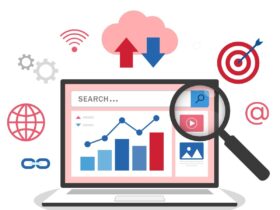Forex trading is one of the most popular forms of trading, and the forex market is the largest and most liquid financial market in the world. With a multiple-trillion-dollar daily turnover, currency prices are always in flux, providing plenty of opportunities for retail traders who want to make a profit from price movements.
If you want to start trading currencies, you must first have a trading account with a broker. With a sea of options out there, finding one that suits you best may be difficult. Below is a guide on how to make this process easier for you, and the factors you should consider when choosing a broker to work with.
Consider your trading needs
Before you do your research on brokers at all, it is essential that you reflect on and consider your own trading needs, goals, and risk appetite. When you consider your trading needs first, you can filter out the brokers that cannot cater to them, bringing you one step closer to finding the best forex broker for you.
You should think about the products you would like to trade. In this case, ask yourself what currency pairs you are interested in trading. Most brokers offer currency trading for major and minor currency pairs, but if you want to trade exotic pairs, you should bear in mind that you will have to find a broker that offers it.
It is also essential to consider why you are trading in the first place and how much risk you can take, as that can determine your strategy. If you are trading in the long term with the hope of building wealth, you may choose a more conservative investment strategy, such as buying and holding. If you are trading to hone your skills and you are not worried about losing money, your larger risk appetite may lead you to try riskier strategies such as scalping and trading with leverage.
Factors to consider when choosing a forex broker
When you are comparing brokers, you should consider the below factors. They will have an impact on your trading journey, so you should be thorough and do your due diligence.
Regulation
The most important thing is to ensure the broker is regulated and licensed to operate and offer financial services in the Netherlands. The financial authority that regulates brokers in the Netherlands is the AutoriteitFinanciëleMarketen (AFM), which translates to the Authority for the Financial Markets in English. Your broker should be licensed by this regulatory body, as it ensures the broker operates in a fair, transparent, and reliable manner. As a part of the European Union, there are other financial frameworks that maybe applicable to the broker you choose, and they should be compliant with local Dutch laws too.
Trading platform
You should also consider the trading platform offered by the broker. This is the software that allows you to place trades, view charts, and manage your investment portfolio and account. Choose a broker that offers a robust, secure, and user-friendly platform that you can use with ease with a high level of customisation ability. This can allow you to rearrange your interface as you wish.
For example, Danish investment bank and broker Saxo has their own investment platform with their own charting tools and analysis on a highly customisable interface. The broker provides manuals on how to use the platform on their website and how their clients can add their own spin on it. This can be a great way for traders to explore advanced charting tools and indicators for free to grow their forex trading skills.
Products offered
Next, you should consider the products the broker offers. Most of them offer major and minor currency pairs. However, not all of them offer different types of exotic currency pairs, so if you intend on trading them, you should make sure the broker offers what you are looking for. In addition to currency pairs, you should also examine the derivative products they provide, such as forex CFDs, forex options, and more. This can give you multiple ways to participate in the forex market.
Spreads and fees
All brokers have different fee structures and account tiers, and they may also offer different spreads on the currency pairs you want to trade. Shop around for the most competitive spreads, and make sure that you do not overlook other fees a broker may charge for their services. These may include overnight financing rates, management fees, withdrawal and funding charges, commissions, and more. Ensure there are no hidden fees that will be a nasty surprise when you start trading with them.
Customer service
Having strong customer support is vital. Ensure the broker offers ways for you to contact them, and make sure they are responsive. If you have other language needs, you should also make sure they offer what you require.
Education and research
Finally, many brokers offer education and research in the form of courses, webinars, articles, and market updates. If you are interested in keeping up with the forex market and keen to learn new ways of trading, you should find a broker that offers insightful research from a team of professionals. This can ensure you make informed trading decisions.
Bottom line
There is no such thing as the best forex brokers across the board, but you will be able to find the best one for you if you have a clear understanding of what your needs are and what you require in a broker. Be sure to compare their fees and expertise, as well as their regulation, experience, and range of products offered. When you do your due diligence and vet your broker thoroughly, you will be able to participate in forex trading with ease.












